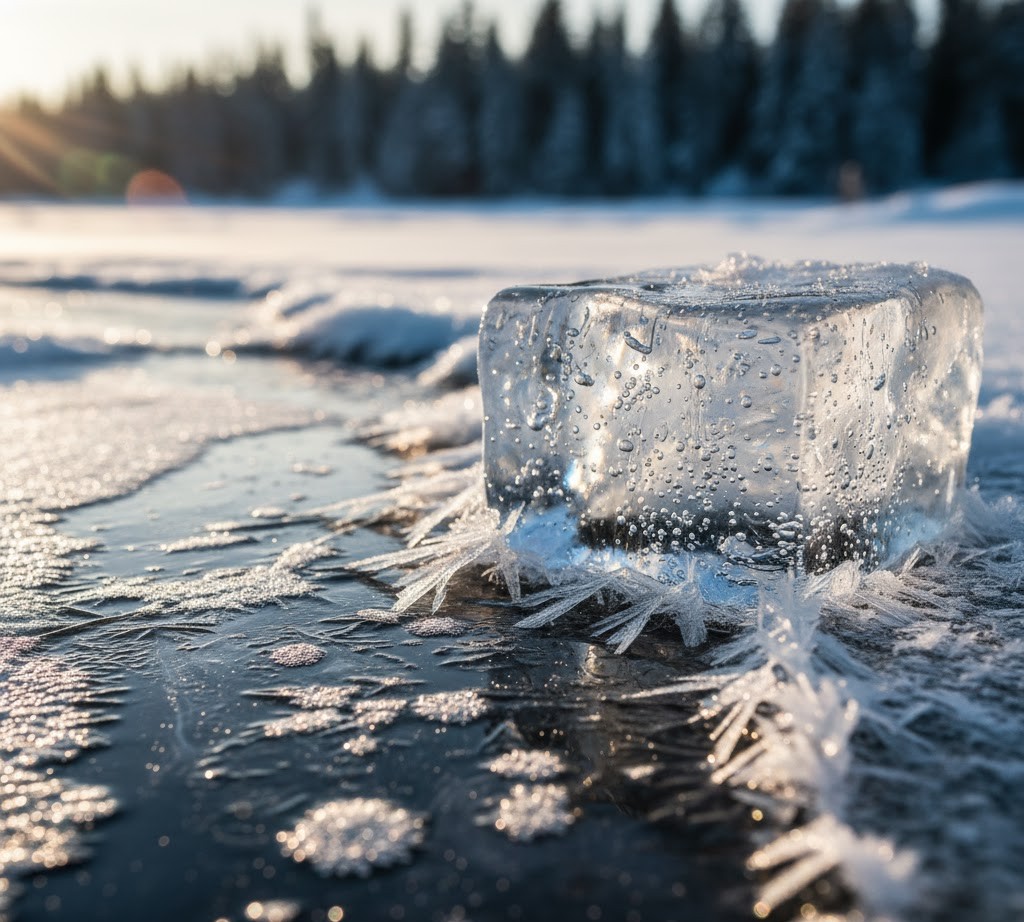
When placing water in a freezer, logic dictates that the coldest water should freeze the fastest. After all, a container of hot water must first cool down to the cold water's starting temperature before it can even begin the freezing process. Yet, counter to this basic principle of thermodynamics, a phenomenon has been observed where **hot water freezes faster than cold water**. This thermodynamic enigma is known as the **Mpemba Effect**. Though the effect has been observed for over 2,000 years, it was named after Erasto Mpemba, a Tanzanian schoolboy who noticed the unusual behavior while making ice cream in the 1960s.
1. The Origin of the Paradox: From Aristotle to Mpemba
The observation that warm water can freeze sooner than cold water was first recorded by **Aristotle** in the 4th century BC. This observation, however, was largely dismissed or ignored by modern science until Mpemba's persistent curiosity. In 1963, while preparing an ice cream mixture, Erasto Mpemba observed that when he put his mixture into the freezer while hot, it froze before his classmates' cold mixtures. Mpemba convinced his physics teacher and later, Professor Denis Osborne from the University of Dar es Salaam, leading to the effect being scientifically documented in 1969.
The effect is not always consistently repeatable. For the Mpemba Effect to manifest, **specific conditions** must often be met, such as a large initial temperature difference, certain container materials, and specific freezer conditions. This variability is why scientists have struggled for decades to agree upon a single, definitive mechanism to explain the phenomenon.
2. Competing Explanations: Heat Transfer vs. Water Chemistry
Dozens of theories attempt to explain the Mpemba Effect, ranging from simple physical processes to the complex chemistry of water at the molecular level.
A. The Evaporation Effect
One of the most accepted classical explanations involves **evaporation**. Hot water evaporates at a much faster rate than cold water. Evaporation leads to two significant effects:
- **Mass Loss:** As hot water evaporates, its total mass decreases. Less mass means less heat needs to be removed for the remaining water to freeze, potentially accelerating the process.
- **Surface Cooling:** Evaporation causes substantial cooling on the water's surface, which can allow the top layer to cool rapidly and initiate the freezing process quicker than the cold water.
B. Dissolved Gas and Supercooling
**Cold water** holds significantly more **dissolved gases** (like air) than hot water. These gases can affect the thermal properties of the water and may slightly lower the freezing temperature. Hot water, having expelled most of its dissolved air when heated, becomes 'purer'. The lack of dissolved gases can facilitate freezing, as the water requires less time to nucleate and form ice crystals.
C. The Role of Convection and Frost
**Convection currents** are also key. As hot water cools, the cooler, denser water moves to the bottom, pushing the hotter water to the top where it can shed heat to the environment. This continuous heat transfer maintains an efficient cooling rate. Furthermore, the freezer floor may frost up quickly under the cold water container, insulating it and slowing the freezing, while the hot water may melt the frost, ensuring better thermal contact with the cold surface.
The newest, highly debated theories involve the physics of **hydrogen bonds**. Some research suggests that the stretching of hydrogen bonds in hot water allows for a more efficient release of energy as the water cools, potentially accelerating the cooling process itself.
4. The Never-Ending Scientific Inquiry
The Mpemba Effect remains a classic open question in physics, challenging the fundamental laws of thermodynamics with a simple observation. It is a fantastic example of how science is not merely a collection of fixed rules, but a continuous process of inquiry, demonstrating that even the simplest substance in our lives—water—still holds deep and complex secrets waiting to be fully explained.
Did exploring this strange secret of water surprise you? Visit our Science category for more articles on thermodynamics, chemistry, and physics!